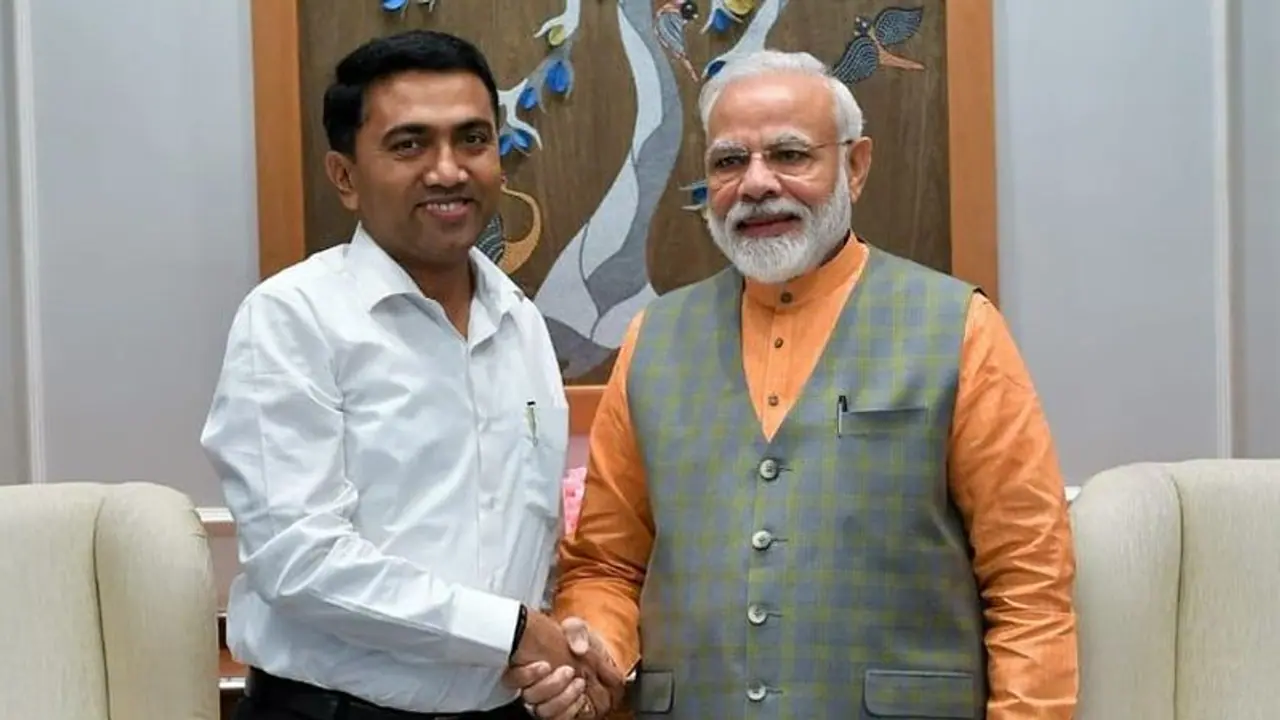In his first presentation before the Niti Aayog, Goa chief minister Pramod Sawant spoke about rainwater harvesting and conservation as his government’s prime focus
Panaji: Goa chief minister Pramod Sawant pushed for rainwater harvesting and conservation as his government's key thrust areas, during his first presentation at Niti Aayog.
Sawant attended the Niti Ayog meeting on Saturday, chaired by Prime Minister Narendra Modi in New Delhi.
Sawant spoke about the Goa BJP-led government's "commitment towards water conservation by increasing the number of check dams and through other rainwater harvesting measures”.
The chief minister also called for resolution of the Mahadayi river water dispute in the interest of the state.
Karnataka and Goa, the riparian states of Mahadayi (known as Mandovi in Goa), have been locked in a bitter battle over the sharing of water of the river, which originates at Belagavi in Karnataka.
This was Sawant's first presentation before the government's policy think-tank after he took charge of Goa's top post in March this year following the death of the then chief minister Manohar Parrikar.
Last week, Sawant announced that the state would construct several check dams within a year and also use abandoned mining pits for rainwater harvesting.
After the NITI Ayog meeting, the government think-tank's official Twitter handle said, "Rainwater harvesting is a major focus area in Goa. The state has focused on the blue revolution and is in the process of formulating a community farming policy."
At the meeting, Sawant also stressed on the need for early resumption of the state's mining operations, a key source of revenue to the government, which came to a standstill in March last year following a Supreme Court order which quashed 88 mining leases.
The BJP-led state government earlier requested the Centre to amend the existing mining laws so that the leases get extended. Sawant also emphasised the need for timely completion of the Mopa international airport in North Goa district.
The Supreme Court earlier this year suspended the environmental clearance granted to the greenfield airport at Mopa and directed the Expert Appraisal Committee (EAC) to revisit the decision in view of its impact on ecology.
Following the court order, the project is likely to miss its deadline for completion of first phase by 2020, a state government official earlier said.
